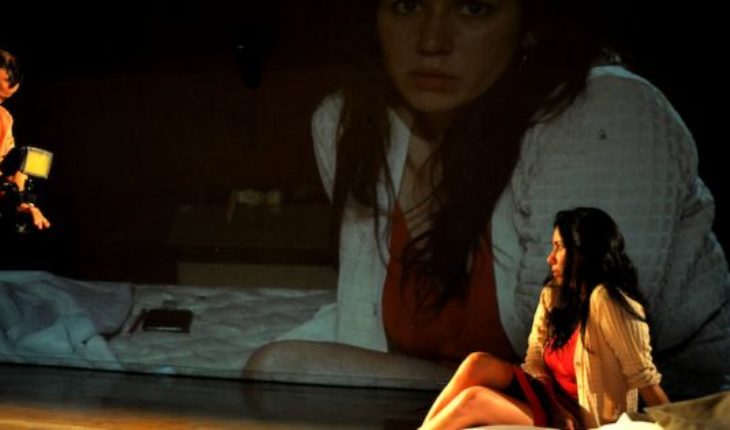Work “Dollhouse”
In main chamber of Matucana 100, Av. Matucana 100. Fifth Normal Metro.
November 16-24. Saturdays and Sundays 12:30 and 17:00 hours.
Tickets for “Pay What You Can” program features are worth $2,000, $4,000, and $6,000, with the option to request free tickets at Ticket office .
In 2014, Zoological Collective presented its version of An Enemy of the People of Henrik Ibsen. This creation started its particular language focused on the mixing of theater with live video capture and projection, determined the current group that makes up it and opened up many artistic possibilities, so much so that in 2018 they were invited to present it to the Ibsen Festival in Oslo, organized by the Norwegian National Theatre.
“Since then the longing to rework a text of his appeared constantly in our conversations. This work emerged as a necessity two years ago when we started rereading it and felt that it allowed us to investigate topics that touched us such as the power relations within the couple, in addition to delving into our scenic language,” declares Lauréne Lemaitre regarding Casa de dolls, co-production M100 that premiere on November 16, starring Nicole Waak, Juan Pablo Troncoso, José Manuel Aguirre and Germán Pinilla.
In the same vein of his five previous works, this creation addresses the political dimension, analyzing the power relations that are established within couples and how the private world becomes a reflection of society. Viewers will witness the story, in a staging where the action unfolds in theater and cinema, through what they call “film performance”; theatrical and cinematic form that involves capturing, editing and screening images in real time and in front of the audience.
“Our proposal coexists with biographical approaches to the experience of love, in order to inhabit the fine line that separates fiction and reality / public and private, stressing the status of the real on stage. Our group seeks to question the hegemonic idea of love in capitalist societies, in which the ideal of a heterosexual couple, still perpetuates their symbolic, moral and political dominance, constituting one of the pillars that sustain our conservative society,” he adds.
Written by Henrik Ibsen in 1879, Dolls’ House became one of the most important works in the history of Western theatre, questioning the limits of what we understand by romantic love and its violent relationship with women’s freedom. In this bet, Nora, surrounded by men and isolated from her family, renounces her marriage and her son after a fierce awakening to the farce that hid the walls of her house. It maintains the structure of the original work, but updates the conflict in pursuit of asking, What do we understand by love?, How do social norms go into the intimacy of couple relationships?, What is romantic love and in what ways does it sanction women’s bodies and lives?
“The figure of Nora has transcended time and has risen as a symbol of female liberation movements. He doesn’t describe a heroine. She is a mother, a sentimental woman, weak, maternal, witchy, crazy, promiscuous, untied… we could define it with all those terms that men use to refer to women. Women are always judged from a man’s point of view. Both ibsen’s work and our version reinforce that view and explore how that limits or relates to women,” she concludes.
Casa de dolls is a co-production between Colectivo Zoológico and Matucana 100, funded by Fondart Nacional 2019. The project was also part of an artistic residency in April and May 2019, at Watermill Center in New York, a prestigious creation center run by Bob Wilson.
translated from Spanish: Work “Dollhouse” in Matucana 100
November 12, 2019 |





